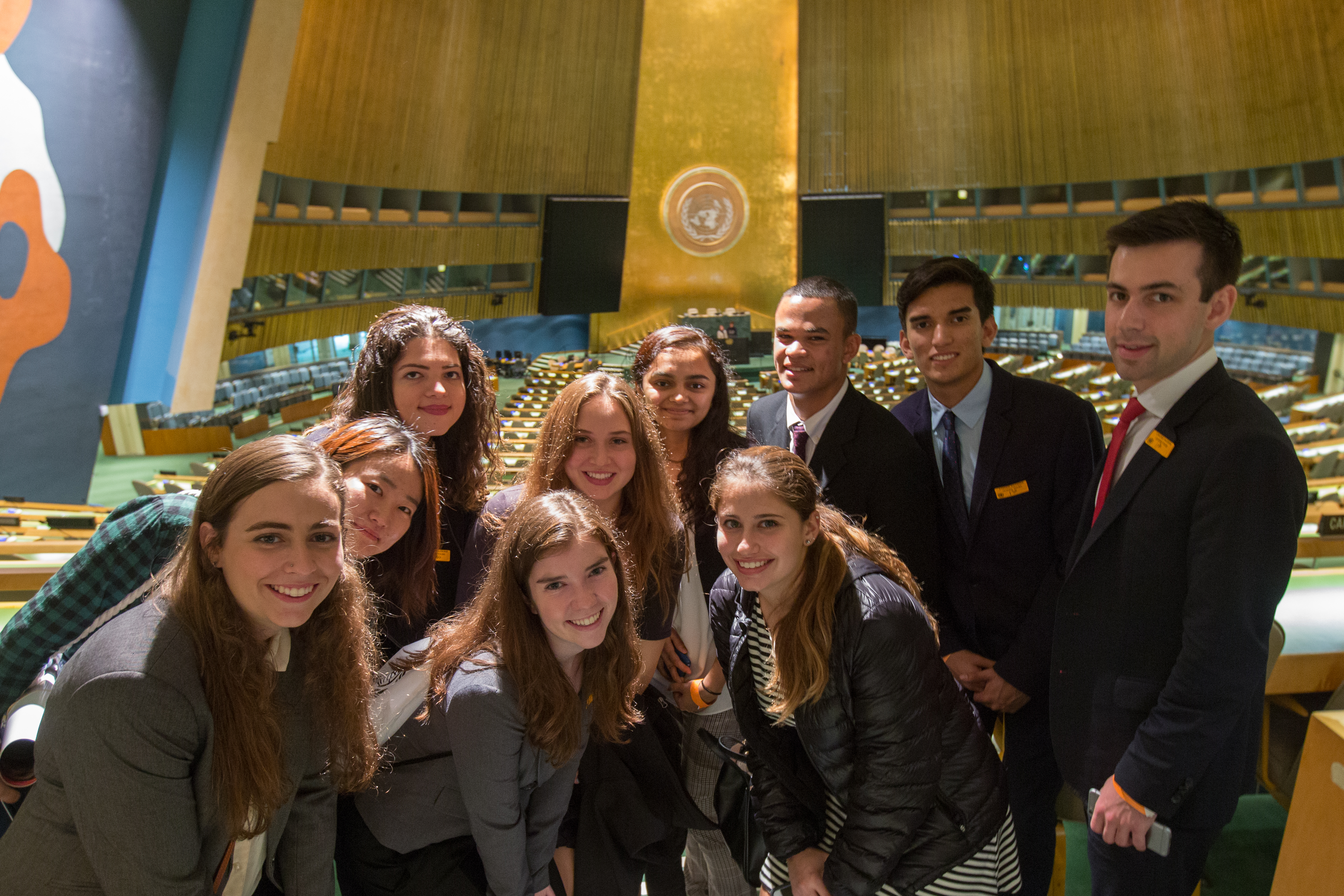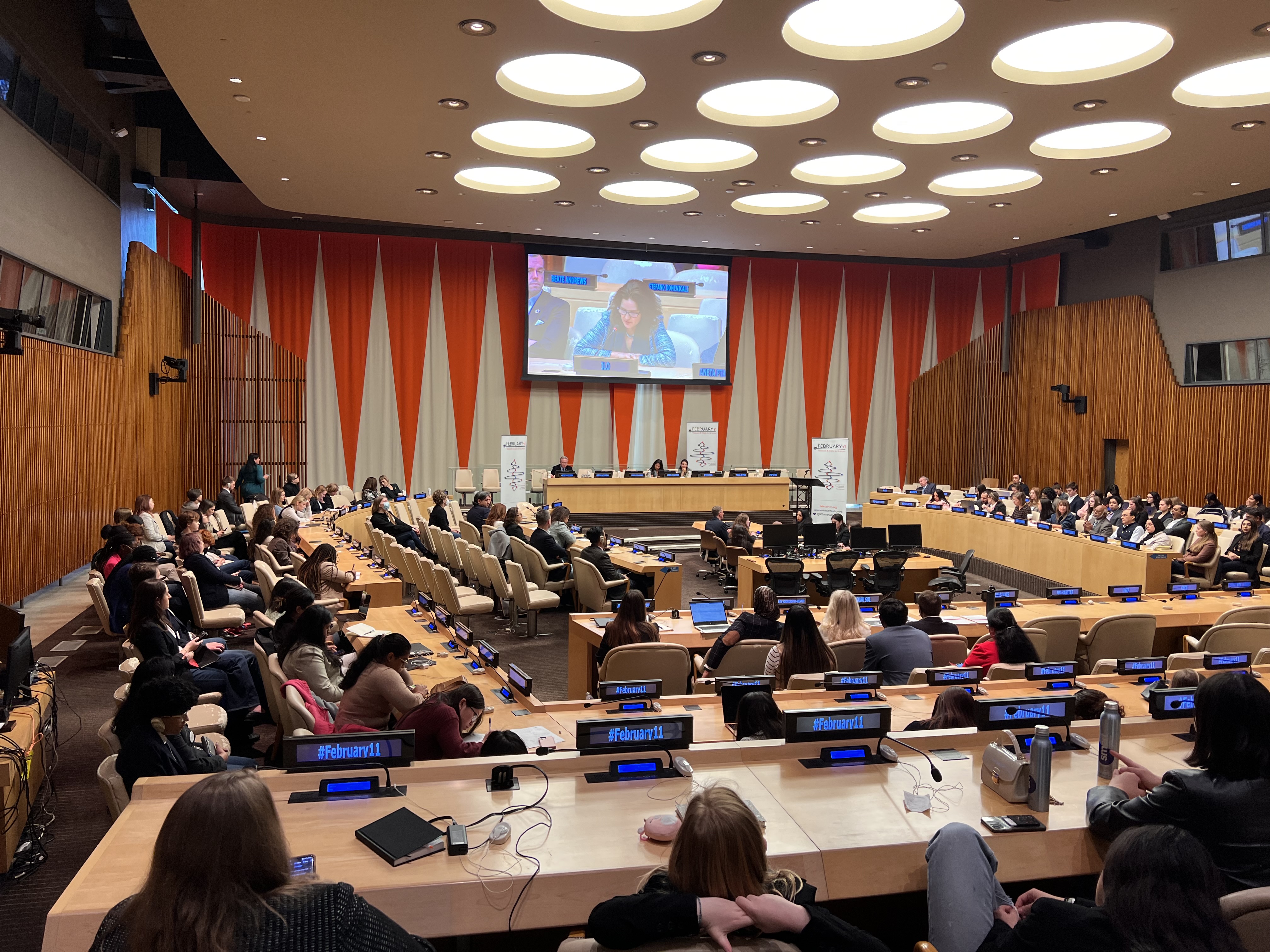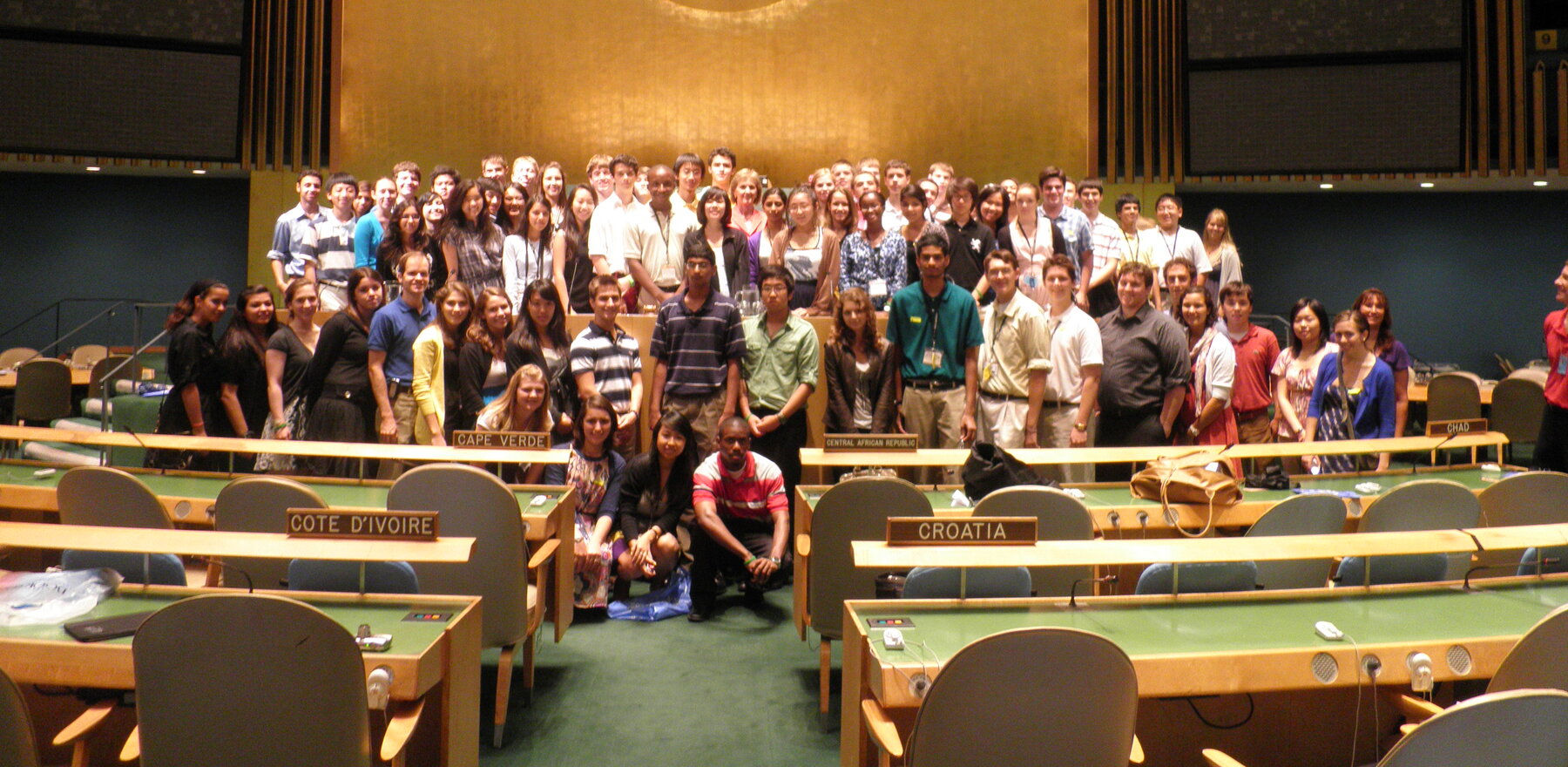Lehigh University’s groundbreaking LU/UN Partnership, now celebrating its 20th anniversary, has opened doors for students, faculty, and staff to engage with global leaders and tackle pressing international issues at the United Nations
It all started with a simple question.
When Bill Hunter interviewed for his first Lehigh University job in 1999, then-Provost Nelson G. Markley asked, “Where could Lehigh be in five years under your leadership?”

On the spot, Hunter – who at the time worked in New York City in a role that served the United Nations – said he believed within five years, Lehigh could be an accredited non-governmental organization (NGO) at the U.N.
Just over five years later, Lehigh became only the sixth university to ever attain NGO status, and the Lehigh University/United Nations (LU/UN) Partnership was born. This year it is celebrating its 20th anniversary.
Over the last two decades, that Partnership has provided opportunities for all Lehigh University students, faculty, and staff to gain skills necessary to become successful global future makers by engaging with the U.N. in meaningful ways.
Gregory Farrington, who was President of Lehigh University when the LU/UN Partnership was established in 2004, said the program helps Lehigh distinguish itself from other institutions. He emphasized the importance of exposing students to international experiences, as many students lack awareness of other cultures and languages outside the U.S.
“It’s crucial for students to engage with the world beyond this island we call the United States,” Farrington said. “This should be integral to every curriculum and university experience. There’s a vast world out there, and someone’s got to engage with it—why not you?”
The U.N. as a Classroom
Each year more than 1,000 Lehigh faculty, staff and students attend U.N. conferences, high-level briefings and private meetings with ambassadors and other U.N. officials in New York City and on campus.
Even before the partnership was formed, Lehigh students had the chance in 2003 to meet privately with Mohammed A. Aldouri, Iraqi Ambassador to the United Nations, just days before the start of the Iraq War. The meeting receives news coverage from The New York Times and helps to propel Lehigh toward NGO status, which it obtained in August the next year.
The LU/UN Partnership offers myriad ways to engage the U.N., including the United Nations Youth Representative Program, which was established in 2008. It matches U.N.-accredited NGOs with high-achieving undergraduate and graduate students who serve that NGO’s voice at the U.N.
Students can also engage the U.N. through internships, class trips, faculty research presentations, the UNA-Lehigh Student Club, and more.
“For Lehigh, the U.N. is one of our classrooms, an internship hub, a research center, a vehicle for youth voices to be heard, and an opportunity to interact with global decision makers on some of the world’s most pressing issues,” Hunter said.
Unique Experiential Learning Opportunities
The Partnership has hosted visits from many U.N. officials over the years, from Former President of the U.N. Security Council Anwarul Chowdhury in 2010, to the Ukrainian Ambassador Sergiy Kyslytsya last month. In 2014, Lehigh students attended a U.N. presentation by Malala Yousafzai, the Pakistani education activist and Nobel Peace Prize laureate.
Farrington believes the LU/UN Partnership is a key factor in attracting students by offering unique, globally focused opportunities that other universities could not match.
Jack Lule, Iacocca Endowed Professor of Journalism & Communication, watched the program grow from the very beginning. He said it provides unique experiential learning opportunities, allowing students to attend sessions on various topics at the U.N., such as women's studies, environmental issues, and journalism.
“You have to be impressed by the longevity of the program,” Lule said. “Celebrating 20 years is a remarkable achievement, and that doesn't happen without an institutional commitment. And it’s even more impressive considering the Partnership isn’t tied to a specific department.”
Andrew Ward, a professor in the Management Department, has been engaged with the LU/UN Partnership since around when he began working at Lehigh 15 years ago. He regularly takes MBA students to the U.N. as part of his “Societal Shifts” class to understand the intersection of business and the U.N.’s sustainable development goals (SDGs).
“We also bring U.N. personnel to Lehigh to engage with students, offering insights into global issues,” Ward said. “We also set up a scholarship for U.N. personnel to join Lehigh’s MBA program, bringing diverse perspectives to the classroom.”
Shaping Careers

Nur-e Rahman Freedman ‘04 was one of the students who went to the United Nations the day Lehigh received its NGO accreditation. She began her career interning at the U.N., and went on to work more than seven years at Google, primarily focusing on rebranding efforts and change management. Last year, she began her own consulting company, Kerning Strategies.
She described the LU/UN partnership as a foundational experience that helped shape her career. The internship included organizing NGO conferences and handling media relations with high-profile dignitaries, giving her exposure to global leaders and professionalism at a young age set a high bar for her future career.
“Getting exposure to these world leaders at such a young age, being in the room where it's happening, and organizing NGOs from all across the world—it’s just a remarkable experience,” Rahman Freedman said.
Lule said Lehigh’s close proximity to New York City has helped make engagement with the U.N. feasible, allowing professors to build their courses around U.N. visits and providing students remarkable opportunities to serve as NGO delegates at the United Nations.
“The U.N. is something you read about in high school, and you hear about in college, and all of a sudden you're witnessing it,” Lule said. “To these students who come out and see the United Nations in action, I think awe is probably the right word. It never failed to leaves them in awe.”
